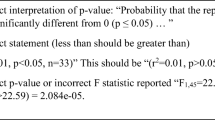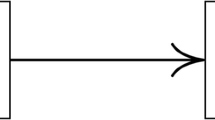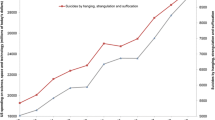Abstract
The precautionary principle is a widely accepted policy norm for decision making under uncertainty in environmental management, However, some of the traditional ways of ensuring trustworthy results used in environmental science and of communicating them work contrary to the general goal of providing the political system and the public with as good an input as possible in the decision making process. For example, it is widely accepted that scientists should only communicate results fulfilling the traditional scientific standard for hypothesis testing. The need for introducing complementary norms in environmental science is illustrated by a recent discussion among scientists on how the precautionary principle should be used in the context of marine biological studies. This discussion highlights the importance of the use of statistical power in communicating scientific results to decision makers and to the general public as well as to the scientific peers.
We argue that it would be unethical to report only certainties—because of the need of early warnings—and it would in the same way be unethical to hide the uncertainties. Environmental science can make a better contribution to environmental decision making, if the available knowledge is communicated in a manner which allows for insight on how strong the evidence is.
Similar content being viewed by others
References
Dethlefsen, V. (1986) Marine pollution mismanagement: towards a precautionary concept. Marine Pollution Bulletin 17: 54–57.
Anon. (1987) Ministerial Declaration. Second International Conference on the protection of the North Sea. London, United Kingdom.
Anon. (1995) Ministerial Declaration. Forth International Conference on the protection of the North Sea, Esbjeg, Denmark.
Harding, R. & Fisher, L. (1992) The precautionary principle. Paper for ecopolitics VI conference, September 1992, Melbourne, Australia.
Stebbing, A.R.D. (1992) Environmental Capacity and the Precautionary Principle. Marine Pollution Bulletin 24: 287–295.
Gray, J.S. (1990a) Statistics and the precautionary principle. Marine Pollution Bulletin 21: 174–176.
Gray, J.S. (1990b) (reply to Josefson). Marine Pollution Bulletin 21: 599.
Milne, A. (1993) The perils of green pessimism. New Scientist, June 12th, 34–37.
Bewers, J.M. (1995) The declining influence of science on marine environmental policy. Chem. Ecol. 10: 9–23.
Gray, J.S. & Bewers, J.M. (1996) Towards a scientific definition of the precautionary principle. Marine Pollution Bulletin 32: 768–771.
Peterman, R.M and M’Gonigle, M. (1992) Statistical Power Analysis and the Precautionary Principle. Marine Pollution Bulletin 24: 231–234.
Wynne, B. and Mayer, S. (1993) How science fails the environment. New Scientist 138: 32–35.
Buhl-Mortensen, L. (1996) Type-II statistical errors in environmental science and the precautionary principle. Marine Pollution Bulletin 32: 528–531.
Kaiser, M. (1997) Unpopular and Precautionary Science: Towards a new Ethics of Science; in eds. Dalla Chiara, M.L. et al., Structures and Norms of Science, Kluwer Academic Publishers, Boston, MA., p. 189–206.
Josefson, A.B. (1990a) Increase of benthic biomass in the Skagerrak-Kattegat during the 1970s and 1980s — effects of organic enrichment? Mar. Ecol. Prog. Ser. 66: 117–130.
Josefson, A.B. (1990b) (letter). Marine Pollution Bulletin 21:598.
Forbes, L.S. (1990) A note on statistical power. The Auk 107: 438–453.
Fairweather, P.G. (1991) Statistical power and design requirements for environmental monitoring. Aust. J. Mar. Freshwater Res. 42: 555–567.
Peterman, R.M. (1990) Statistical Power Analysis can improve fisheries research and management. Can. J. Fish. Aquat. Sci. 47: 2–15.
Underwood, A.J. (1996) Detection, interpretation, prediction and management of environmental disturbance: some roles for experimental marine ecology. Journal of Experimental Marine Biology and Ecology 200: 1–27.
Cowles, M. & Davis, C. (1982) On the origins of the.05 level of statistical significance. American Psychologist 37: 553–558.
Munthe, C. and Welin, S. (1996) The Morality of Scientific Openess. Science and Engineering Ethics 2: 411–428.
Cohen, J. (1988) Statistical Power Analysis for the Behavioural Sciences, 2nd edition, Lawrence Erlbaum Associates, IIilldale, New Jersey.
Yoccoz, N.G. (1991) Use, overuse, and misuse of significance tests in evolutionary biology and ecology. Bulletin of the Ecological Society of America 72:106–111.
Author information
Authors and Affiliations
Additional information
Stellan Welin, Ph.D., is an Associate Professor and Director of the Centre for Research Ethics in Göteborg.
Rights and permissions
About this article
Cite this article
Welin, S., Buhl-Mortensen, L. The ethics of doing policy relevant science: The precautionary principle and the significance of non-significant results. SCI ENG ETHICS 4, 401–412 (1998). https://doi.org/10.1007/s11948-998-0035-9
Received:
Revised:
Accepted:
Issue Date:
DOI: https://doi.org/10.1007/s11948-998-0035-9




